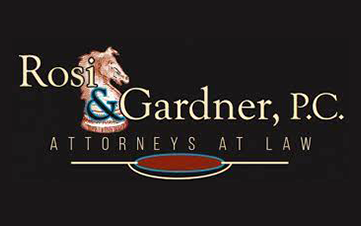Divorce can be ugly. It doesn’t have to be the worst chapter of your life, though. Even if it begins badly, it does not have to end that way. The way you and your spouse choose to divorce can make a difference. For couples who are able to commit themselves to work through difficult issues, with the guidance and expertise of collaboratively trained professionals, they may find their best divorce.
The process which gives the most control to you is Collaborative Divorce. It can give you privacy, decision-making, and your best result. There are, however, a number of misconceptions about Collaborative Divorce. It is not:
A “play nice” divorce, using the traditional paradigm;
A “kitchen table” division of assets;1
A platform to exert power or control over the other spouse; or
A mediated or arbitrated divorce.
Nor is it easy. Collaborative Divorce requires a commitment, from both spouses, to a specialized, private process, to resolve all legal, financial and child-related components of their marriage. It is the process which puts you, the soon-to-be-former partners, in maximum control of the divorce. And, it is the most private. Nothing is filed in Court, not even the documents to start the case, until a complete settlement had been reached. You can even avoid filing your property settlement agreement in the public record.
Rather than cede your decision-making authority to a judge (or a referee), Collaborative Divorce puts you in control. Both spouses commit themselves, and their attorneys, to resolving their issues through a series of confidential meetings, outside of Court. Everyone, including counsel, signs a binding agreement that if they are unable to reach resolution within the Collaborative process, neither lawyer involved can represent either spouse in court. This, “the withdrawal clause,” has the effect of keeping everyone “at the table.”
This is crucial, because divorce involves difficult issues and decisions. When your marriage has ended, you must separate and disentangle your lives, including all financial aspects, assets, debts and liabilities, as well as custody and parenting issues. It can involve the division of retirement assets, professional practices, business ownership (often closely-held businesses), opinions of valuation, and even questions of spousal support (a/k/a alimony). With Collaborative Divorce, the goal of the team is to maximize the allocation of resources to best meet the needs and goals of the restructured family units.
Also critical to a Collaborative Divorce commitment is full disclosure. Both spouses, and their attorneys, agree that all assets, liabilities, and aspects of the divorce, will be fully and confidentially disclosed to each other. This avoids the expensive, cumbersome and frustrating process of discovery. Discovery often feels like a game (an expensive one), with each “side” required to ask just the right question to get the necessary information. Depositions may be needed, or someone may be forced to “go to the Judge.” Such gamesmanship does little to engender trust, or create any sort of foundation for moving forward after the divorce.
The Collaborative process, though, can do just that. You will continue to have a relationship with your co-parent, post-divorce. What will it look like? How will it function, for the kids? If you use the Collaborative model, your kids will have parents who can communicate, and make decisions together, though they are now divorced. Collaborative Divorce often gives co-parents new ways, new structures, to communicate and to make decisions together. Isn’t that worth the work and commitment?
The Collaborative process can also give efficiency to your divorce. You will have a number of skilled professionals partnered with you, focused on overcoming obstacles, and helping you to reach a fair resolution of your issues. For example, you will have a “financial neutral” who is likely to be a CPA and/or a certified valuation professional, to help generate options, for both sides, to allocate various types of marital assets (and income) going forward. Under the “traditional” (litigated) paradigm, each side often employs multiple professionals, to provide competing valuations, often with much intrusion into the business and its operations. Collaborative Divorce avoids that, with the efficiency, and privacy, of a single, confidential, financial neutral, who can also provide valuable insight regarding tax consequences.
You will also have other professionals on your Collaborative team. Each spouse will have their own attorney, as a guide and confidant. You will have one or more “divorce coaches,” who can be invaluable in addressing emotional and psychological issues and blockages to settlement. If one spouse is “stuck,” your coach can help address and guide him through that obstacle.
Finally, Collaborative has a virtue closely linked to our current state of pandemic. Our courts have been backed up, and it may take quite some time to get your case completed. With Collaborative Divorce, as soon as you can reach agreement with your spouse, you can start conducting your lives according to that agreement, and then file your documents with the Court. Obtaining the Court order severing the bonds of matrimony becomes merely an administrative act, whereby the Court adopts your settlement.
Divorce is not pleasant; and, it is usually difficult. Don’t you owe it to yourself, and to those affected by the end of your marriage, to do it in the best way possible? If so, consider choosing Collaborative Divorce. You can learn more at: www.CollaborativePractice.com and www.collaborativepracticemi.org. http://www.cpim.org.
_______________________
Gary Allen Gardner is a Collaborative Divorce practitioner, attorney and mediator, at Rosi & Gardner, P.C. in Traverse City, with over 25 years of experience with family law matters. You can find additional information about Michigan divorce processes at his web site, www.DivorceBest.com.
Rosi & Gardner, P.C.
Latest posts by Rosi & Gardner, P.C. (see all)
- Is Collaborative Divorce the Right Choice for You? Exploring a Path to Amicable Separation - November 29, 2023
- Choosing Harmony: Why Opt for Collaborative Divorce Over Traditional Divorce - August 30, 2023
- Benefits of Mediated Divorce - May 24, 2023
